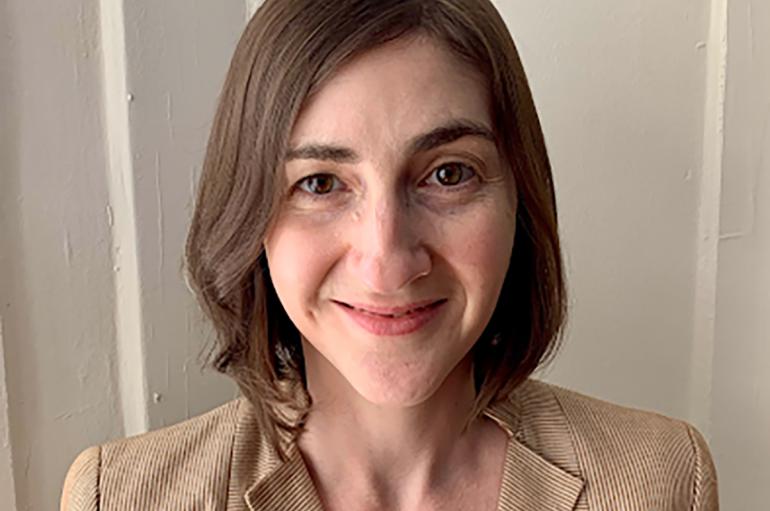
Brigid Cohen, Associate Professor of Music at New York University, presents her paper titled "Michiko Toyama at the Columbia-Princeton Electronic Music Center".
The Paris-trained, Japanese composer Michiko Toyama (1913-2006) was appointed as the earliest foreign-born visiting composer at the Columbia-Princeton Electronic Music Center (CPEMC), the first institutionally supported studio of its kind in the United States. Yet she remains virtually unknown to scholarship (Tsuji 1999), despite a growing literature on women pioneers in electronic music (Hinkle-Turner 2006; Rodgers 2010). From 1956 to 1959 at Columbia, Toyama cultivated a tape aesthetic that highlighted classical Japanese traditions of female authorship while tapping into the downtown spoken word and global gagaku crazes. During the same period, her hosts Otto Luening and Vladimir Ussachevsky coordinated with the Rockefeller Foundation (RF) to found the CPEMC with a massive $175,000 grant (1958), framing their studio as a venture in cultural diplomacy. Toyama’s project and presence cast new light on the founding of this technocultural music institution within Cold War configurations of power. Drawing on interviews, archival research, and the interpretive study of music, this talk shows how Toyama’s work and persona call out for alternative histories of electronic music, which will render New York’s “uptown scene” foreign to itself.
About Brigid Cohen
Brigid Cohen is Associate Professor of Music at New York University. She has taught and published on the politics of 20th-century avant-gardes, archive studies, diaspora and cosmopolitanism theory, 20th-century German-Jewish thought, histories of genocide, and intersections of music, literature, and the visual arts. Her book Stefan Wolpe and the Avant-Garde Diaspora (2012) won the Lockwood Award from the American Musicological Society. She also edited and convened the round table “Edward Said and Musicology Today,” published in Journal of the Royal Musical Association in 2016. Her second monograph, Musical Migration and Imperial New York: Early Cold War Scenes, is forthcoming with University of Chicago Press in April, 2021. From the urban street-level of music clubs and arts institutions to the world-making routes of global migration and exchange, this book redraws the map of experimental art to reveal the imperial dynamics and struggles of citizenship that continue to shape music in the United States. Her recent work has been supported by the Max Planck Institute for History of Science, the National Endowment for the Humanities, and Wellesley College.
